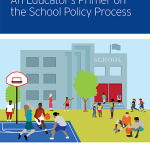Developing Positive Disciplinary Strategies to Support Children with ADHD and Tourette Syndrome
Considerations for school administrators
Children with attention-deficit/hyperactivity disorder (ADHD) and/or Tourette syndrome benefit when schools use positive rather than punitive disciplinary strategies.
Positive discipline practices can help make school routines predictable and achievable for students. Positive practices encompass a range of strategies built on a foundation of empathy, respect, and inclusion instead of exclusion and punishment. While punitive discipline leads to poorer outcomes for students with disabilities, evidence-based positive discipline has been shown to increase school connectedness and engagement as well as improve school climate and safety.
This fact sheet provides answers to administrators’ essential questions about the benefits of positive discipline approaches. Using case studies and examples, it outlines steps for selecting positive discipline practices that are the right fit for your school.



